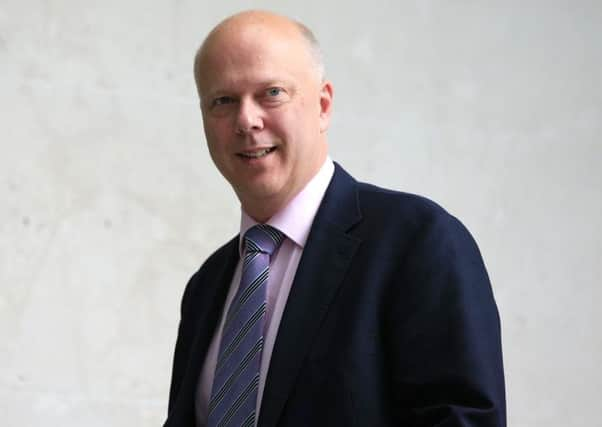YP Comment: HS3 - Second best is not an option


The Minister also sensed the frustration of commuters when interviewed by The Yorkshire Post on why this region is the poor relation when it comes to infrastructure investment – he won’t be forgiven if he is guilty of over-promising and under-delivering.
That is why HS3 – or Northern Powerhouse Rail to use its official title – is a barometer of this Government’s commitment to narrow the North-South divide. It makes no sense that it can be quicker to travel from Hull to London than from the East Yorkshire city to Manchester and Liverpool. And although the Government does not want anything to detract from HS2 – the superfast railway from London to the North is now supposed to be the nation’s saviour when it comes to road potholes caused by HGVs – it cannot be at the expense of nationally-important projects in the regions.
Advertisement
Hide AdAdvertisement
Hide AdThis was made abundantly clear at the Northern Powerhouse Conference when leaders, like Manchester Airport chief executive Ken O’Toole, were among those to make the case for HS3. Though he hopes more people will use his airport for international travel, faster and more reliable rail links between Yorkshire’s major cities, including Sheffield, and the North West, will make it easier for people of all ages to access job opportunities. That cannot be guaranteed at present when rush-hour trains between Leeds and Manchester are invariably limited to three carriages. Londoners don’t tolerate this. It’s why a second Crossrail line is being mooted before the first route is even completed. Why, therefore, should the North keep accepting second best? Over to you, Mr Grayling.
The real food chain
THREE cheers to the UK’s food and drink producers whose exports hit a record £20bn in 2016 – further proof that farmers enjoy an unrivalled reputation when it comes to quality. Yet many agricultural businesses would not be able to make ends meet without migrant labour – out-of-work Britons don’t have the inclination, or willpower, to pick fruit and vegetables for minimum reward.
Without menial workers from abroad, the food chain would simply not function. If fresh produce is left to rot in fields or not processed properly, the knock-on effects, for example, extend to the sandwich shop having to import salad products – or insufficient strawberries to make jams and other delicacies. And so it goes on.
What is perturbing, however, is the lack of clarity about the rights of farm workers when it comes to the now imminent Brexit talks. Though many voters want tougher controls on immigration, will they be prepared to pay more for their weekly groceries if labour restrictions lead to increased food imports because there are insufficient people to work on the farms? As farmers need to plan ahead, Andrea Leadsom, the low-profile Brexit-supporting Environment Secretary, should listen respectfully to the CLA’s call today for special dispensation to be given to seasonal agricultural workers.
Advertisement
Hide AdAdvertisement
Hide AdThis isn’t a matter for the EU. Self-sufficiency is a matter for Mrs Leadsom who was only too pleased to take the credit at yesterday’s NFU conference for the rise in food exports. Now she must put her money where her mouth is... or her inaction will leave a sour taste indeed.
Dignity in death
SO much for NHS founding father Aneurin Bevan’s vision of ‘cradle to grave’ care. Despite hospital staff performing miracles to uphold standards, it is distressing, dispiriting and demoralising to learn that two-thirds of nurses feel they have insufficient time to give dying patients high-quality care.
This is nursing. This is their chosen vocation – to nurse the sick, and to provide them with dignity and comfort, as their lives draw to a close. If they can’t do so, the fault does not rest with the nurses – blame must be attached to those politicians and senior NHS managers who have not invested in their staff and they should be ashamed that it has reached this point.
A defining test of a civilised society is how it treats its elderly and vulnerable. With the hospice movement dependent on the benevolence of wellwishers, and care policy appearing to lurch from one crisis to another, those who can influence such matters need to remember that dignity in death is not an optional extra. It is a human right.